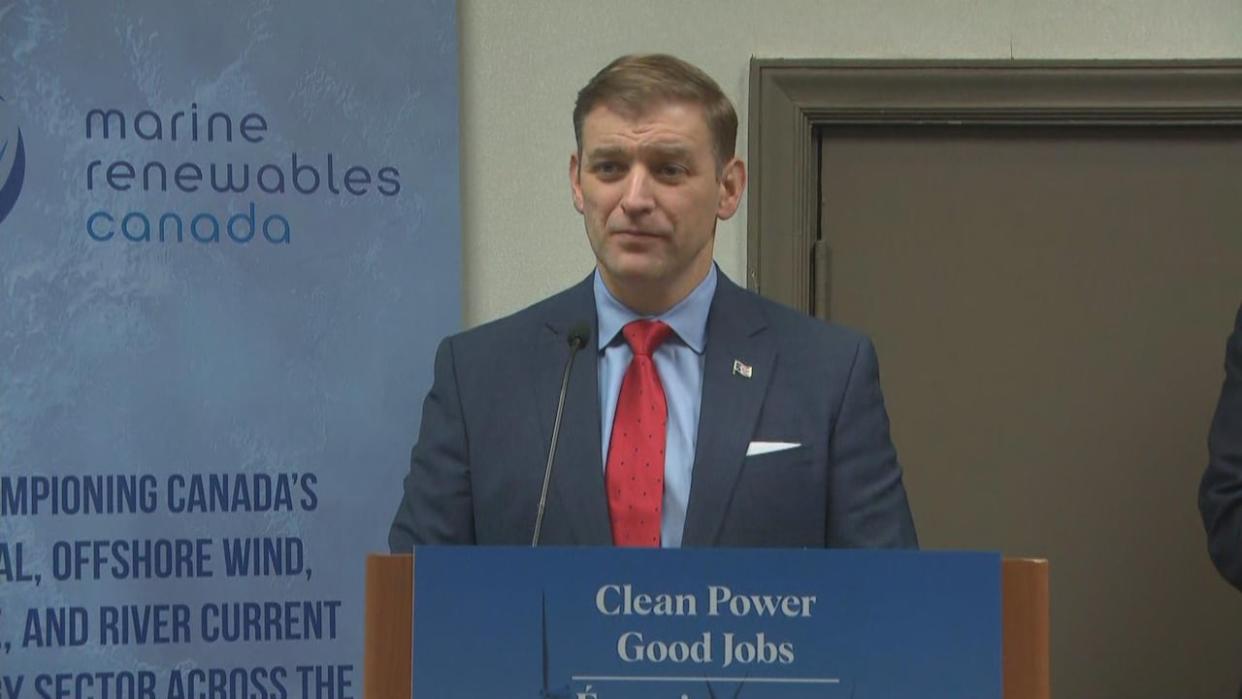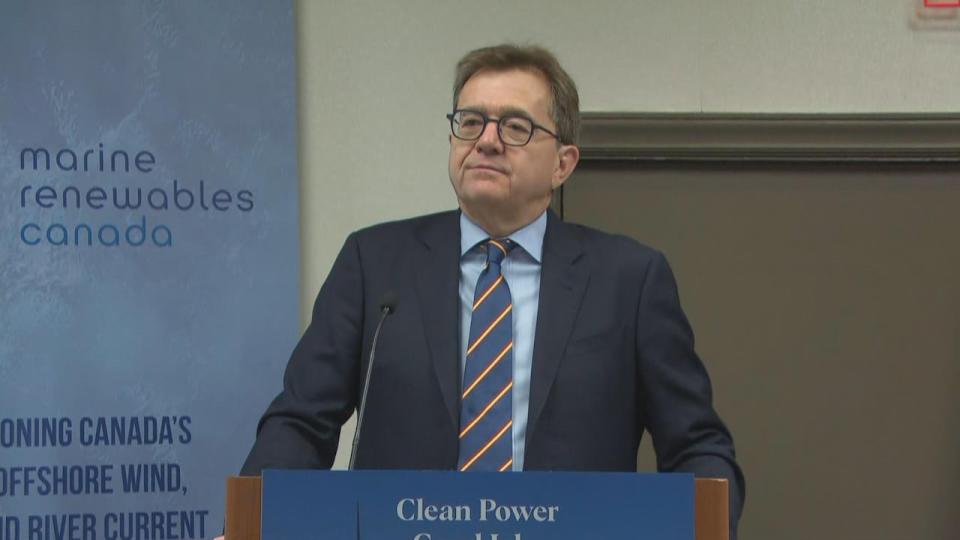Furey signs agreement to put development of offshore wind energy in N.L. hands


Newfoundland and Labrador Premier Andrew Furey says a memorandum of understanding signed by the province and the federal government will provide clarity for investors and the world market looking for renewable energy. (Government of Canada)
Newfoundland and Labrador is positioning itself as the primary benefactor and regulator when it comes to offshore wind developments in the province — but the deal hinges on federal legislation passing in Ottawa.
The memorandum of understanding with the federal government identifies 16 bays as exclusive provincial jurisdiction, allowing the province to develop wind farms as though they were on land.
"This crucial federal-provincial agreement puts us in the driver's seat and will allow us to reap the majority benefit from the endless possibilities of the new green economy," Premier Andrew Furey said Wednesday.
The deal will ensure N.L. is the one to regulate its renewable energy developments within the province's waters while clearly signalling to investors that the bays will be under N.L. control, he said. It will also guarantee the province will benefit from its resources.
"These changes will ensure a fiscal framework that provides the maximum economic returns to Newfoundland and Labrador," said Furey.
Provide certainty
Offshore wind development is tied up with the passing of Bill C-49, which would enable offshore boards to regulate renewable energy as if it were oil.
Federal Energy and Natural Resources Minister Jonathan Wilkinson said the bill is being filibustered, getting in a dig in at federal Opposition leader Pierre Poilievre.
"To be honest, I just do not understand Mr. Poilievre and why his Atlantic MPs would decide to oppose and to stall a bill that is supported by Premier Furey and [Nova Scotia] Premier [Tim] Houston and is intended to enable the development of … a huge economic opportunity for Atlantic Canada," he said.
When asked if the memorandum of understanding will still take effect if Bill C-49 doesn't pass, Wilkinson didn't provide a clear answer. Furey also didn't directly answer but reiterated that the memorandum will provide certainty for the province and investors.
CBC News asked provincial Industry, Energy and Technology Department spokesperson Tansy Mundon the same question but she referred all questions to Natural Resources Canada.
Federal Energy and Natural Resources spokesperson Carolyn Svonkin told CBC News Thursday that the MOU gives certainty for investors and stakeholders on how the wind energy off Newfoundland's coast will be regulated.
"These co-ordinates will then be set out in regulations under the Accord Acts, once Bill C-49 is enacted. This is how the offshore area is defined in the Canada-Nova Scotia Atlantic Accord Implementation Act," she said in an emailed statement.
As a result, Bill C-49 has to pass before the MOU can come into full effect, she added.
Message to world market
Wilkinson said there are economic opportunities in the move to low-carbon emissions and Canada is well positioned to enter the market with a skilled workforce, technology and resources.
"With world-class wind resources and considerable geographic advantages, Newfoundland and Labrador has the potential to build a thriving offshore wind sector that will be well positioned to support both the growing demand for clean electricity and a globally competitive hydrogen export industry," said Wilkinson.
He said Canada and N.L. are sending the global markets a clear signal that the country wants to be a trusted supplier of clean energy.
There is a choice when it comes to navigating the future and Canada might be left behind if it fails to act, he warned.
"We can choose to lead by recognizing where the world is heading and aggressively pursuing those opportunities that will be enabled through a transition to a low carbon future," he said.
The other option is to ignore the green economy shift and fall behind.
Furey also said the provincial government is currently assessing four proposals for onshore wind hydrogen projects that will have an estimated 35 to 40 years of work, an estimated $206.2 billion in gross domestic product and bring in an additional $11.7 billion in revenue, $60 billion in total capital spent, and 12,000 jobs.
"And that is just on land. Now we look to the ocean."
Furey on fishing concerns
Furey said Wednesday's announcement was about ensuring the province will be in control of its offshore wind developments but added there are many more conversations to be had.
"Today is … recognition that these will be exclusively ours. I never said that we would develop all of them. I never said how the consultation process will go with fishermen or indigenous partners alike," he said.
There will be efforts to protect the fishery and a consultation process with Indigenous partners, he said.

Federal Energy and Natural Resources Minister Jonathan Wilkinson says the world is moving toward a green economy and Canada should seize the initiative. (Government of Canda)
Prior to the MOU, said Furey, the government couldn't move forward with offshore wind development because it was unclear who would govern it.
"Now we have clarity on the inshore piece and the offshore piece and we will work together, of course, with the [Fish, Food & Allied Workers], with fish harvesters and processors alike," said Furey.
Furey also announced the Canada-Newfoundland and Labrador Offshore Petroleum Board's name will change to the Canada Newfoundland and Labrador Offshore Energy Regulator, while also expanding its mandate to become the lead regulatory body for offshore energy outside provincial jurisdiction.
These offshore developments will be jointly managed by the province and federal government.
Download our free CBC News app to sign up for push alerts for CBC Newfoundland and Labrador. Click here to visit our landing page.

